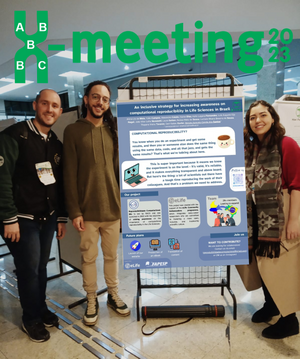International students and scholars are accepted into various education programs around the world, which contributes to the multicultural environment we see in academia. This leads to a rich exchange of ideas, and is a fundamental aspect of how the academic environment is nourished. Synergy of efforts from this diverse pool of scientists leads to innovative discoveries in all the academic fields. On the other hand, researchers overseas enjoy learning and experiencing different cultural traditions that diverse cultures bring, like varieties in food, clothing, and festivals. But the situation is not all roses. While international programs are well known for open opportunities for applicants around the world, overseas researchers go through a lot of social, emotional and professional barriers and struggles during their professional growth in a foreign country.
One of our authors shared an incident with us. “One of the first struggles happened to me when I entered my graduate program and I was going through a departmental orientation. A senior international graduate student mentioned to me that “we are not eligible for most of the fellowships”. I was shocked to hear about how different were the opportunities available for students recruited in the same graduate program, depending on their origin. My response was a visceral: “What an international discrimination this is!!”” Many international students and scholars share similar experiences and emotions when living overseas.
This blog talks about how vulnerable and excluded you can feel as an international researcher, and what kind of struggles they are frequently facing. We will also discuss about potential solutions.
Belonging: Overseas researchers come to exchange educational programs for a better and more diverse educational experience. While adapting to a new cultural background and paradigms can be exciting and enriching, it also involves learning a new language (and slang) and new ways to perform daily activities to survive (first), and flourish (in the end). International scholars are constantly experiencing cultural differences not only in diet or transportation, but also in how to interact with friends, random people in the street, peers or superiors, which challenge the moral principles, ethics and cultural sensitivities they have learned in their home country. So, besides experiencing and coping with different education systems, international scholars are constantly struggling with their belonging and identity. The presence of international students and scholars offices at universities are a boon to promote inclusion, but can only be effective if their offerings target all student populations. For example, multi-cultural events, organized by international institutional offices that celebrate festivals and cultures across the world, can help students and postdocs network while learning about each other's diverse cultures. However, for this to work, representatives of each culture should attend, including that of the host country. In addition, creation of platforms for local and international scholars to share common interests and hobbies could also help bridge gaps between diverse scholar populations. For example, monthly activities such as book clubs, hiking, and other outdoor activities can be organized in the community to promote global belonging.
Fellowships: Most countries offer fellowships to students and postdocs in order to support their education and/or research program. However, international researchers are not always eligible for the majority of fellowships that are funded by the local governments. So, they often depend on funding support from either their part-time jobs as teaching assistants, or from their supervisor’s grant. This dependence can also lead to work abuse by professors and/or a heavy workload, which consequently leads to less time for their own education. This is a great inequity of conditions when compared to an average local student. Additionally, some educational programs are supported solely through local funding, and do not accept international students. This is detrimental not only for the professional growth of the internationals, but also for the diversity and success of an educational program in science. Development of more global programs, such as the Fulbright Fellowships in the US, where in partner countries develop tie-up exchange programs will help meet the need of growing internationals. In addition to the increasing STEM talent, these opportunities improve diplomacy, intercultural competence and relationships between the US and other participating countries. This kind of funding opportunities will relieve internationals from the burden of funding support for their education.
Visa Issues: Before a student or postdoc can start an international exchange program, they need to obtain a visa that will allow them to enter and study (or work) in a different country. This visa process usually takes (a long) time and it is common for international scholars either to miss the first few weeks of the program (because of a delay in the visa process), or miss the whole program due to complications related to it. These situations are emotionally exhaustive, and waste vast amounts of precious time and financial resources from early career scientists who are imagining themselves to endeavor their professional dream journey. It is surely important for students embarking on an international journey for their education to start in a timely manner to avoid these stressful situations. However, furthermore unnecessary visa delays can be avoided by developing a “global visa” program for scientists that would omit the requirement to apply for visas to an individual country. A similar problem arises for researchers when they plan to attend conferences related to their field across the world. Oftentimes, a stressful tug of war in between attendance in the conference and the visa process for a few months before the scheduled dates of the conference is causing emotional attacks. Visa delays interfere with the opportunity of international students and scholars from communicating their work to the scientific community. Alternatives such as organizing global conferences preferentially in visa friendly countries, considering the proper timing for visa issues, and offering the alternative of presenting through high-end video conferencing technologies should be encouraged.
Jobs: Depending on the country they studied in and its visa restrictions, international scholars not only miss many growth opportunities in their career, but also find it hard to get a job. Oftentimes, incredibly successful individuals trained in an internationally recognized educational program are forced to move to a different country, typically back to their home countries to find employment. This not only reduces their job opportunities, but it also involves adjusting yet again to a new environment that may not be compatible with the new perspectives of their professional life. Additionally, job application documents and processes differ between countries, making it hard for international scholars to adapt their certifications to the new country.
Given all these points, it is important to provide equal opportunities for international scholars during their whole educational process, without putting their visa status as students in jeopardy. Universities in collaboration with the international office should make sure that there are no inequities when building their professional paths. Lastly, professional growth should not be impeded or impacted because of being international. Creating solutions and streamlining the process of permanent residency for international scholars trained in the US to reduce the dependency on visa sponsorship will increase the retention of international talent in the US.
In conclusion, we would like to point out that international students and postdocs contribute immensely to the diversity and richness of all academic institutions. However, they are struggling hard with several inequities significantly impacting their mental health and professional growth. Currently, as multiple countries are putting effort into recruiting international talent, we as a scientific community need to be more considerate of the needs of international researchers, especially at their early career stage when they are more vulnerable. They need to be taken care of as one of the main driving forces of innovation in the world, and recognize them for their intrinsic value as humans.
About the authors:
Yseult Héjja-Brichard is a behavioural ecologist with a background in cognitive neuroscience. She is interested in how the visual environment of a species influences visual perception and preferences and how they in turn shape a species' communication signals. Connect with Yseult on Twitter or LinkedIn
Ankita Arora is a freelance science writer who writes about genomics, RNA therapeutics, healthcare, biotechnology, and science policy. She is a molecular biologist by training and has 12 years of research experience in RNA biology. Connect with Ankita on Twitter or LinkedIn
Ruchika Bajaj is a membrane protein biologist. She is interested in understanding structure-functional relationships in membrane proteins and their interactions in the context of physiological processes and diseases. Connect with Ruchika on Twitter or LinkedIn.
Image by rawpixel.com on Freepik







